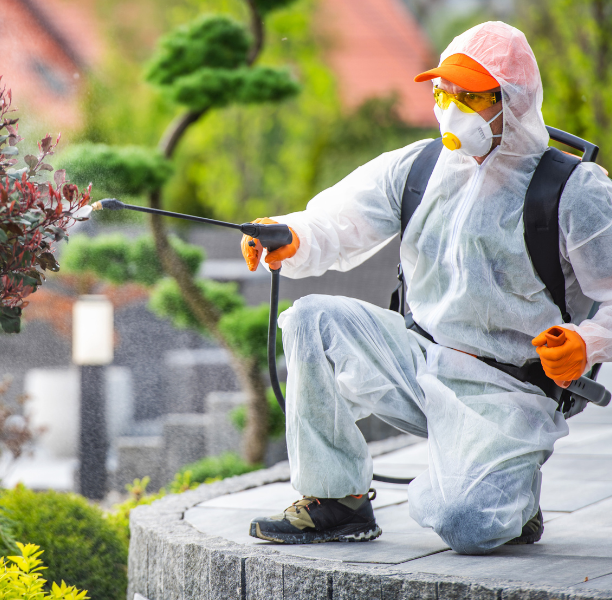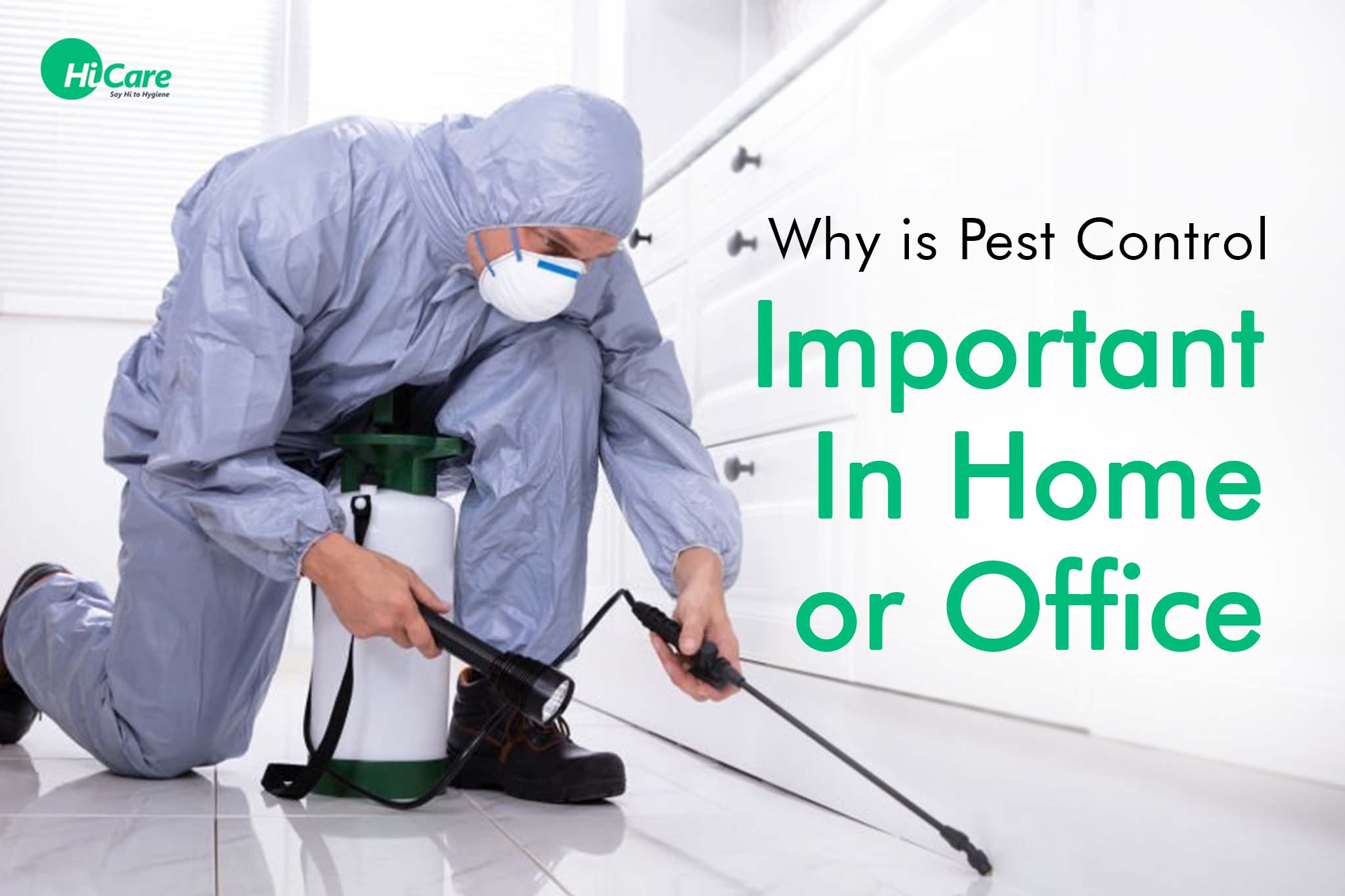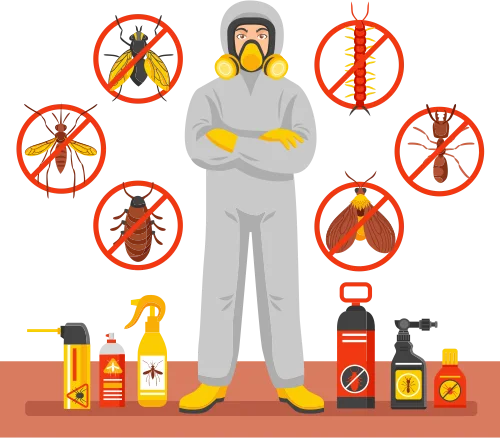Reliable Pest Control Coquitlam BC: Your Local Experts in Pest Management
Safe and Trusted Parasite Control for Lasting Security
Effective bug monitoring calls for a complex strategy that stabilizes ecological honesty with the need for effective pest suppression. The nuances of these methods may not be promptly clear, prompting a closer examination of the methods that can lead to sustainable pest control outcomes.
Understanding Insect Control Techniques
Bug control encompasses a variety of techniques aimed at handling and getting rid of unwanted pests and rats that can intimidate both wellness and residential property. Comprehending these techniques is critical for reliable bug administration.
The primary groups of bug control techniques include mechanical, biological, and chemical approaches. Mechanical approaches include physical barriers and catches to stop insect access and capture unwanted varieties. As an example, utilizing displays on home windows or employing sticky catches can substantially minimize bug populations without presenting dangerous compounds.

Chemical parasite control is frequently one of the most identified method, using pesticides to get rid of parasites. These chemicals can be effective but need to be used with care to avoid damaging impacts on non-target types and the atmosphere.
Benefits of Eco-Friendly Solutions
Exactly how can eco-friendly options change parasite control techniques? The fostering of environment-friendly insect control techniques provides various benefits, substantially improving the performance and security of bug administration.

An additional benefit is the favorable effect on local biodiversity. Eco-friendly services are developed to target particular pests while maintaining helpful bugs and wild animals, advertising a balanced ecological community. This technique aligns with the expanding consumer need for sustainable techniques, boosting the credibility of bug control suppliers.
Integrated Insect Management Methods
The implementation of environment-friendly remedies normally results in the adoption of Integrated Bug Monitoring (IPM) techniques, which better boost pest control efficiency. IPM is an alternative strategy that combines several methods to handle parasite populations while decreasing environmental impact. This approach highlights the usage of organic, cultural, mechanical, and chemical controls, making sure a lasting and balanced technique of parasite management.
One fundamental aspect of IPM is the detailed assessment of bug task and environmental problems. By monitoring insect populations and recognizing their life cycles, professionals can implement targeted interventions that disrupt the insect's habitat or lifecycle, decreasing reliance on chemical pesticides. Furthermore, cultural practices such as crop rotation and habitat manipulation can considerably diminish parasite establishment and reproduction.
One more important part is using biological control agents, such as useful bugs or bacteria, which can normally suppress pest populations. When chemical applications are needed, IPM focuses on the usage of low-risk chemicals and uses them precisely, decreasing direct exposure to non-target microorganisms and human beings.
Including IPM approaches not just boosts parasite control efficiency however likewise promotes a safer community, aligning with the expanding demand for lasting techniques in parasite monitoring.
Safe Practices for Home Owners
Recognizing the value of secure methods in insect control can encourage property owners to successfully handle pest issues while safeguarding their health and the setting. Executing preventative procedures and non-toxic methods is crucial in decreasing direct exposure to hazardous chemicals.
House owners ought to initially analyze their environment for problems that attract bugs, such as standing clutter, food, and water waste. Frequently cleaning and securing access points can hinder pests from invading the home. Utilizing all-natural deterrents, such as vital oils or diatomaceous planet, can offer efficient alternatives to chemical pesticides.
When chemical treatments are needed, homeowners need to choose items that are specifically identified as secure for domestic use. It is necessary to adhere to application guidelines thoroughly to stay clear of overexposure. Additionally, using targeted therapies in areas where insects are recognized, instead of blanket splashing, can significantly decrease chemical usage.
Last but not least, preserving open communication with bug control specialists is vital. Property owners ought to ask concerning the safety of products used and request environmentally friendly alternatives whenever feasible. By best exterminator coquitlam taking on these secure techniques, homeowners can produce a healthier living environment while efficiently managing insect issues.

Tips for Long-Term Security
Establishing a bug monitoring approach that emphasizes long-term protection can significantly enhance the effectiveness of the risk-free practices previously discussed. To achieve this, property owners must implement routine examinations of their residential property, concentrating on hidden areas such as attics, cellars, and crawl spaces. Early detection of bug activity is vital in protecting against invasions from taking hold.
These methods minimize attractants that attract parasites right into the home. Securing access points, such as fractures around windows and doors, can effectively obstruct potential bug access.
Landscape design must additionally be considered; maintaining plants trimmed and maintaining a distance in between vegetation and the home lessens hiding areas for pests. Utilizing natural deterrents, such as crucial oils or diatomaceous earth, can even more prevent invasions without considering severe chemicals.
Last but not least, collaborating with a specialist pest control service for periodic evaluations can give an added best exterminator coquitlam layer of safety and security. These professionals can use customized suggestions and progressed therapies, making certain that best exterminator coquitlam your home continues to be safeguarded versus insects in the long-term.
Verdict
To conclude, trustworthy and secure parasite control calls for a complex strategy that highlights environment-friendly methods and integrated insect management. By carrying out natural deterrents, carrying out routine assessments, and keeping proper sanitation, homeowner can dramatically lower pest populaces while shielding helpful insects and the atmosphere. Partnership with expert bug control services improves the efficiency of these strategies, making certain customized services that provide lasting security and tranquility of mind versus future invasions.
Effective pest management calls for a diverse method that stabilizes ecological integrity with the need for effective pest reductions. The adoption of eco-friendly bug control methods uses various advantages, considerably boosting the efficiency and safety and security of insect management.The execution of environmentally friendly remedies naturally leads to the fostering of Integrated Pest Monitoring (IPM) approaches, which additionally enhance parasite control effectiveness. exterminator coquitlam. By keeping track of parasite populaces and recognizing their life cycles, specialists can apply targeted treatments that interrupt the insect's habitat or lifecycle, lowering reliance on chemical pesticides.In verdict, reliable and safe insect control needs a multifaceted approach that stresses environmentally friendly approaches and integrated parasite management